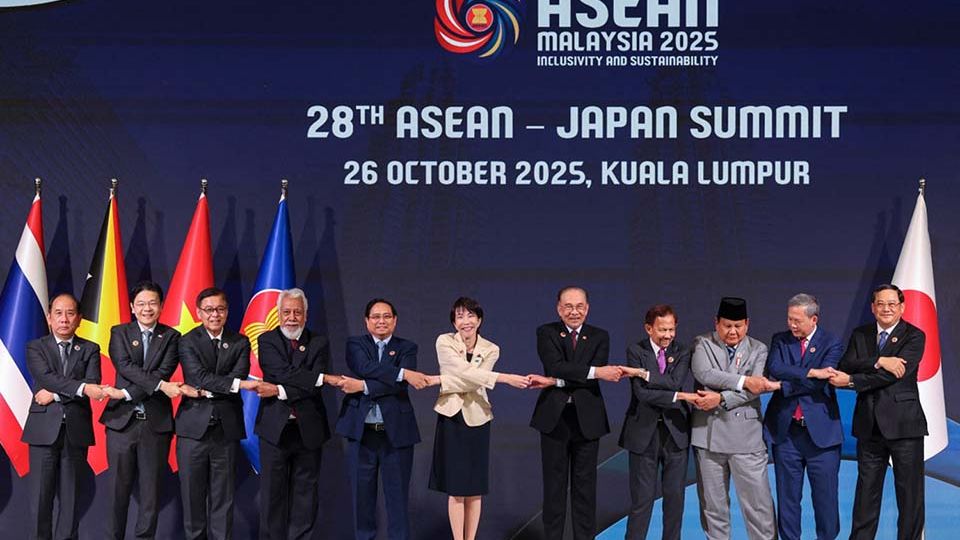October 27, 2025
TOKYO – Economic growth in Southeast Asian countries has been remarkable. However, many of these countries are struggling with the current situation in which the free trade system is under threat and the rule of law has been shaken.
It is important for Japan to further deepen cooperation with these nations and to strive to maintain the international order.
Prime Minister Sanae Takaichi is scheduled to attend leaders’ meetings related to the Association of Southeast Asian Nations, starting today in Malaysia. This is Takaichi’s first overseas visit after taking office.
In Malaysia, Takaichi plans to participate in the Japan-ASEAN summit and hold bilateral meetings with the leaders of multiple countries. She is expected to indicate that she will promote the vision of a free and open Indo-Pacific.
In the South China Sea, China is advancing efforts to establish military outposts such as by building artificial islands. Tensions have recently escalated in the area, due in particular to Chinese Coast Guard vessels repeatedly colliding with Philippine ships.
China’s hegemonic activities only destabilize the region.
The South China Sea is a vital maritime transport route for Japan, too. A proposal to export used Japanese destroyers to the Philippines has surfaced between the two countries. It is hoped that they will strengthen defense cooperation by realizing exports of the vessels.
Japan and ASEAN affirmed that they would deepen cooperation as “equal partners” when they marked 50 years of relations in 2023.
Subsequently, Japan and Vietnam launched a decarbonization project involving both the public and private sectors. It is hoped that the two countries will build mutually beneficial relations by expanding such initiatives.
U.S. President Donald Trump has imposed high tariffs on countries including Indonesia, the Philippines and Vietnam.
On the other hand, Chinese President Xi Jinping has visited various ASEAN countries and strengthened Beijing’s support for them. This is likely meant to enhance China’s influence over them.
Takaichi must take the lead in ensuring regional stability by persistently conveying to ASEAN countries the importance of free trade and of maintaining the maritime order.
It is regrettable that Takaichi plans to leave Malaysia before the ASEAN meetings end, in order to prepare for Trump’s arrival in Japan on Monday.
Former Prime Minister Shinzo Abe, over his many years in office, valued international conferences because they offered the chance to have bilateral meetings with the leaders of various countries. Indeed, many countries, such as Australia, India and Iran, asked for bilateral talks as Japan’s presence in the international community has grown stronger.
It would be hard to say that Japan has now made effective use of such past diplomatic achievements.
If Takaichi truly intends to “restore Japan’s diplomacy,” she needs to build relationships of trust with world leaders and actively seek to engage in efforts such as restoring peace and taking part in post-conflict rebuilding efforts.

